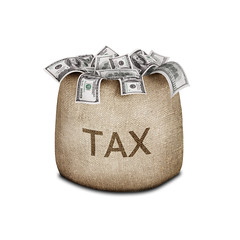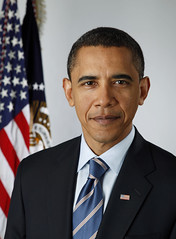| 9043119948 | Good Neighbor Policy | President Franklin Roosevelt's foreign policy of promoting better relations with Latin America by using economic influence rather than military force in the region. (p. 523) |  | 0 |
| 9043119949 | Pan-American conferences | In 1933, the United States attended a conference in Montevideo, Uruguay, in which we pledged to never again intervene in the internal affairs of any Latin American country. At a second conference in 1936, the U.S. agreed to the cooperation between the U.S. and Latin American countries to defend the Western Hemisphere against foreign invasion. (p. 523) |  | 1 |
| 9043119950 | Soviet Union recognized | The Republican presidents of the 1920's had refused to grant diplomatic recognition to the Communist regime that ruled the Soviet Union. President Franklin Roosevelt promptly changed this policy by granting recognition in 1933. (p. 524) |  | 2 |
| 9043119951 | Independence for Philippines | In 1934, President Roosevelt persuaded Congress to pass the Tydings-McDuffie Act which provided independence for the Philippines by 1946. (p. 524) |  | 3 |
| 9043119952 | reciprocal trade agreements | In 1934, Congress enacted a plan that would reduce tariffs for nations that reciprocated with comparable reductions for U.S. imports. (p. 524) |  | 4 |
| 9043119953 | Japan takes Manchuria | In September 1931, Japanese troops invaded Manchuria, on China's eastern seaboard. The League of Nations passed a resolution condemning the action but did not take action. (p. 521) |  | 5 |
| 9043119954 | Stimson Doctrine | In 1932, Secretary of State Henry Stimson said the United States would not recognize territorial changes resulting from Japan's invasion of Manchuria. (p. 522) |  | 6 |
| 9043119955 | fascism | A political system in which people glorify their nation and their race through an aggressive show of force. Economic hardships led to the rise of military dictatorships, first in Italy, then in Japan and Germany. (p. 524) |  | 7 |
| 9043119956 | Italian Fascist party | In 1922, they seized power in Italy. They attracted dissatisfied war veterans, nationalists, and those afraid of rising communism. They marched on Rome and installed Mussolini in power. (p. 524) |  | 8 |
| 9043119957 | Benito Mussolini | He founded the Italian Fascist Party, and sided with Hitler and Germany in World War II. In 1945, he was overthrown and assassinated by the Italian Resistance. (p. 524) |  | 9 |
| 9043119958 | Ethiopia | In 1935, fascist Italy invaded this African nation. (p. 526) |  | 10 |
| 9043119959 | German Nazi party | This party arose in 1920's Germany in reaction to deplorable economic conditions after war and national resentments over the Treaty of Versailles. By 1933, the party under leader Adolph Hitler, had gained control of the German legislature. (p. 524) |  | 11 |
| 9043119960 | Adolf Hitler | Austrian-born founder of the German Nazi Party and chancellor of the Third Reich (1933-1945). His fascist philosophy, embodied in the book Mein Kampf attracted widespread support, and after 1934 he ruled as an absolute dictator. Hitler's pursuit of aggressive nationalist policies resulted in the invasion of Poland (1939) and the subsequent outbreak of World War II. His regime was infamous for the extermination of millions of people, especially European Jews. He committed suicide in 1945, when the collapse of the Third Reich was imminent. (p. 524) |  | 12 |
| 9043119961 | Axis Powers | Alliance of Germany, Italy, and Japan during World War II. |  | 13 |
| 9043119962 | Spanish Civil War | In 1936, a rebellion erupted in Spain after a coalition of Republicans, Socialists, and Communists was elected. General Francisco Franco led the rebellion. The revolt quickly became a civil war, by 1939 Franco had established a military dictatorship. (p. 525) |  | 14 |
| 9043119963 | Francisco Franco | In 1936, he plunged Spain into a Civil War. By 1939, Franco's Fascist had established a military dictatorship. (p. 525) |  | 15 |
| 9043119964 | Rhineland | In 1936, Adolf Hitler invaded this region. This was in violation of the Treaty of Versailles which had declared the area a demilitarized zone. (p. 526) |  | 16 |
| 9043119965 | Sudetenland | In 1938, Hitler insisted Germany had the right to take over an area in western Czechoslovakia. (p. 526) |  | 17 |
| 9043119966 | Munich | A 1938 conference, at which European leaders attempted to appease Hitler by turning over the Sudetenland to him in exchange for promise that he would not expand Germany's territory any further. (p. 526) |  | 18 |
| 9043119967 | appeasement | A policy of making concessions to an aggressor in the hopes of avoiding war. In the years 1935 to 1938, a series of military actions by Fascist dictatorships made Britain, France, and the United States nervous, but they did nothing to stop the actions.
* 1935 - Italy invades Ethiopia
* 1936 - German troops invade the Rhineland
* 1937 - Japan invades China
* 1938 - Germany takes the Sudetenland
(p. 526) |  | 19 |
| 9043119968 | Poland; blitzkrieg | On September 1, 1939, Germany invaded this country using overwhelming air power and fast-moving tanks, a term of warfare called lightning war. Britain and France then declared war against Germany. (p. 528) |  | 20 |
| 9043119969 | isolationism | A policy of non-participation in international economic and political relations. A 1934 committee led by Senator Gerald Nye concluded the main reason for participation in World War I was because of the bankers and arm manufacturers greed. This caused the U.S. public to be against any involvement in the early stages of World War II. (p.. 525) |  | 21 |
| 9043119970 | Nye Committee | In 1934, a Senate committee led by South Dakota Senator Gerald Nye to investigate why America became involved in World War I. They concluded that bankers and arm manufacturers pushed the U.S. into the war so they could profit from selling military arms. This committee's work pushed America toward isolationism for the following years. (p. 525) |  | 22 |
| 9043119971 | Neutrality Acts | Laws passed by isolationists in the late 1930s, that were designed to keep the United States out of international wars. (p. 525) |  | 23 |
| 9043119972 | America First Committee | In 1940, after World War II had begun in Asia and Europe, isolationists became alarmed by President Roosevelt's support for Britain. To mobilize American public opinion against the war, they formed this committee. Charles A. Lindbergh was one of it spokesmen. (p. 525) |  | 24 |
| 9043119973 | Charles Lindbergh | In 1927, this U.S. aviator thrilled the world, by making the first nonstop flight from Long Island to Paris. In 1940, he was a speaker for the isolationist America First Committee. (p. 480, 525) |  | 25 |
| 9043119974 | Quarantine speech | In 1937, President Franklin D. Roosevelt made this speech after Japan invaded China. He proposed that democracies act together to "quarantine" Japan. Public reaction to the speech by the American public was negative, and the idea was abandoned. (p. 526) |  | 26 |
| 9043119975 | cash and carry | Policy adopted by the United States in 1939 to preserve neutrality, while aiding Great Britain. Great Britain could buy U.S. military arms if it paid in full and used its own ships to transport them. (p. 528) |  | 27 |
| 9043119976 | Selective Training and Service Act | In 1940, Roosevelt passed this law requiring all males aged 21 to 36 to register for military service. (p. 528) |  | 28 |
| 9043119977 | destroyers-for-bases deal | In September 1940, Roosevelt cleverly arranged a trade that would help Great Britain. The United States gave Britain fifty older but still serviceable US destroyers, in exchange the U.S. was given the right to build military bases on British Islands in the Caribbean. (p. 528) |  | 29 |
| 9043119978 | FDR, third term | In the 1940 presidential election, Franklin D. Roosevelt won a third term in office. (p. 529) |  | 30 |
| 9043119979 | Wendell Willkie | Franklin Roosevelt's Republican opponent in the 1940 Presidential election. (p. 529) |  | 31 |
| 9043119980 | Four Freedoms speech | A speech by President Franklin Roosevelt on January 6, 1941 that proposed lending money to Britain for the purchase of U.S. military weapons. He argued that the U.S. must help other nations defend "four freedoms" (freedom of speech, freedom of religion, freedom from want, and freedom from fear). (p. 529) |  | 32 |
| 9043119981 | Lend-Lease Act | In March 1941, this act permitted Britain to obtain all U.S. arms they needed on credit during World War II. (p. 529) |  | 33 |
| 9043119982 | Atlantic Charter | In August 1941, U.S. president Franklin D. Roosevelt and British prime minister Winston Churchill met aboard a ship off the coast of Newfoundland. They created this agreement which outlined the principles for peace after the war. (p. 530) |  | 34 |
| 9043119983 | escort convoys | In July 1941, the U.S. began to provide protection for British ship carrying U.S. arms being transported to Britain. (p. 530) |  | 35 |
| 9043119984 | oil and steel embargo | In September 1940, Japan joined the Axis powers. The United States responded by prohibiting export of steel and scrap iron to Japan and other countries. In July 1941, when Japan invaded French Indochina, the U.S. cut off Japanese access to many vital materials, including U.S. oil. (p. 530) |  | 36 |
| 9043119985 | Pearl Harbor | On December 7, 1941, a date that will live in infamy, this U.S. naval base in Honolulu, Hawaii was bombed by Japanese planes. 2,400 Americans were killed and 20 warships were sunk or severely damaged. The next day, the United States declared war on Japan. (p. 531) |  | 37 |
| 9043119986 | War Production Board | During World War II, President Roosevelt established this agency to allocated scarce materials, limit or stop the production of civilian goods, and distribute contracts among competing manufacturers. (p. 531) |  | 38 |
| 9043119987 | Office of Price Administration | This World War II federal agency regulated most aspects of civilian lives by freezing prices, wages, and rents and rationing commodities in order to control inflation. (p. 532) |  | 39 |
| 9043119988 | government spending, debt | During World War II federal spending increased 1000 percent between 1939 and 1945, and the gross national product grew by 15 percent or more each year. By the war's end, the national debt was $250 billion, five times what it had been in 1941. (p. 532) |  | 40 |
| 9043119989 | role of large corporations | During World War II, the 100 largest corporations accounted for 70 percent of wartime manufacturing. (p. 532) |  | 41 |
| 9043119990 | research and development | The United States government worked closely with industrial companies, universities, and research labs to create and improve technologies that could be used to defeat the enemy. (p. 532) |  | 42 |
| 9043119991 | Manhattan Project | Code name for the secret United States project set up in 1942 to develop atomic bombs for use in World War II. (p. 532) |  | 43 |
| 9043119992 | Office of War Information | Established by the government to promote patriotism and help keep Americans united behind the World War II effort. (p. 533) |  | 44 |
| 9043119993 | the Good War | The term for the unity of Americans supporting the democratic ideals in fighting World War II. (p. 533) |  | 45 |
| 9043119994 | wartime migration | During World War II, over 1.5 million African-Americans migrated from the South to job opportunities in the North and the West. (p. 533) |  | 46 |
| 9043119995 | civil rights, Double V | During World War II civil rights leaders encouraged African Americans to adopt the Double V slogan - one for victory, one for equality. (p 533) |  | 47 |
| 9043119996 | executive order on jobs | During World War II, President Roosevelt issued an executive order to prohibit discrimination in government and in businesses that received federal contracts. (p. 533) |  | 48 |
| 9043119997 | Smith v. Allwright | This Supreme Court case in 1944 ruled that it was unconstitutional to deny membership in political parties to African Americans as a way of excluding them from voting in primaries. (p. 533) |  | 49 |
| 9043119998 | Braceros program | A program the American and Mexican governments agreed to, in which contract laborers would be admitted to the United States for a limited time as migrant farm workers (p. 533) |  | 50 |
| 9043119999 | Japanese internment | In 1942, over 100,000 Japanese Americans living on the United States West coast were rounded up and put in internment camps. (p. 534) |  | 51 |
| 9043120000 | Korematsu v. U.S. | A 1944 Supreme Court case which upheld the order providing for the relocation of Japanese Americans. It was not until 1988 that Congress formally apologized and agreed to pay financial compensation to each survivor. (p. 534) |  | 52 |
| 9043120001 | Rosie the Riveter | A propaganda character designed to increase production of female workers in industrial jobs in the shipyards and defense plants during World War II. (p. 534) |  | 53 |
| 9043120002 | wartime solidarity | The New Deal helped immigrant groups feel more included, and serving together in combat or working together in defense plants helped to reduce prejudices. (p. 534) |  | 54 |
| 9043120003 | election of 1944 | In this presidential election, Franklin D. Roosevelt replaced his vice president with Harry S. Truman, as they ran against Republican Thomas Dewey. Roosevelt won an unprecedented fourth term, but he died within three months. (p. 534) |  | 55 |
| 9043120004 | Harry S. Truman | He became president on April 12, 1945, when President Franklin Roosevelt died suddenly. In August 1945, he order an atomic bomb be dropped on Hiroshima then on Nagasaki, to end the war with Japan. Japan surrendered on September 2, 1945. (p. 537, 538) |  | 56 |
| 9043120005 | Battle of the Atlantic | The protracted naval war to control the shipping lanes in the North Atlantic. (p. 535) |  | 57 |
| 9043120006 | strategic bombing | United States bomber carried out daylight bombing raids on military targets in Europe, but the lines between military and civilian targets became blurred as war went on. (p. 535) |  | 58 |
| 9043120007 | Dwight Eisenhower | The United States general who commanded the invasion of Normandy (D-Day), Casablanca and the defeat of Nazi Germany. (p. 536) |  | 59 |
| 9043120008 | D-Day | On June 6, 1944 the Allies landed in northern France with the largest invasion by sea in history. By the end of August Paris was liberated from the Nazis, and by September Allied troops had crossed the German border. (p. 536) |  | 60 |
| 9043120009 | Holocaust | A methodical plan, orchestrated by Germany's Adolph Hitler to eliminate Jews, non-conformists, homosexuals, non-Aryans, and mentally and physically disabled. Six million Jews and several million non-Jews would be murdered by the Nazis. (p. 536) |  | 61 |
| 9043120010 | island-hopping | The United States strategy in the Pacific, which called for capturing Japanese-held islands in the Pacific and moving on to others to bring the American military closer and closer to Japan itself. (p. 536) |  | 62 |
| 9043120011 | Battle of Midway | On June 4-7, 1942, the U.S. naval victory over the Japanese fleet at Midway Island. The Japanese lost four of their best aircraft carriers. The battle marked a turning point in the war in the Pacific. (p. 536) |  | 63 |
| 9043120012 | Douglas MacArthur | United States general who served as chief of staff and commanded Allied forces in the South Pacific during World War II. (p. 537) |  | 64 |
| 9043120013 | kamikaze attacks | Japanese pilots would deliberately crash their planes into American ships, killing themselves, but also inflicting severe damage to the ships. (p. 537) |  | 65 |
| 9043120014 | J. Robert Oppenheimer | American theoretical physicist and professor of physics. He led the top-secret Manhattan Project, which built the world's first atomic bomb. (p. 537) |  | 66 |
| 9043120015 | atomic bomb | A nuclear weapon in which enormous energy is released by nuclear fission. (p. 537) |  | 67 |
| 9043120016 | Hiroshima; Nagasaki | On August 6, 1945, the United States dropped the first atomic bomb on Hiroshima, Japan. Then on August 9, a second atomic bomb was dropped on Nagasaki. About 250,000 Japanese died as a result. Within a week after the second bomb was dropped, Japan agreed to surrender. (p. 537) |  | 68 |
| 9043120017 | Big Three | The leaders of the Allies during World War II included: Soviet Union - Joseph Stalin, Great Britain - Winston Churchill, United States - Franklin Roosevelt. (p. 537) |  | 69 |
| 9043120018 | Casablanca Conference | The conference attended by Roosevelt and Churchill in January 1943, to discuss the strategy to win World War II. The plan called for the invasion of Sicily and Italy by British and American troops. They resolved to accept nothing less than unconditional surrender of Axis powers. (p. 537) |  | 70 |
| 9043120019 | unconditional surrender | A surrender with any demands or requests. (p. 538) |  | 71 |
| 9043120020 | Tehran, Yalta, Potsdam | The three cities that held conferences for the leaders of the Allied powers, United States, Great Britain, and Soviet Union during World War II. (p. 538) |  | 72 |
| 9043120021 | United Nations | On October 24, 1945, this international organization formed after World War II to promote international peace, security, and cooperation. (p. 539) |  | 73 |
































































































































































































